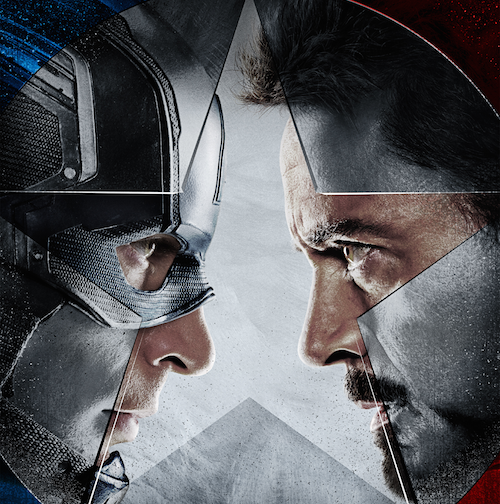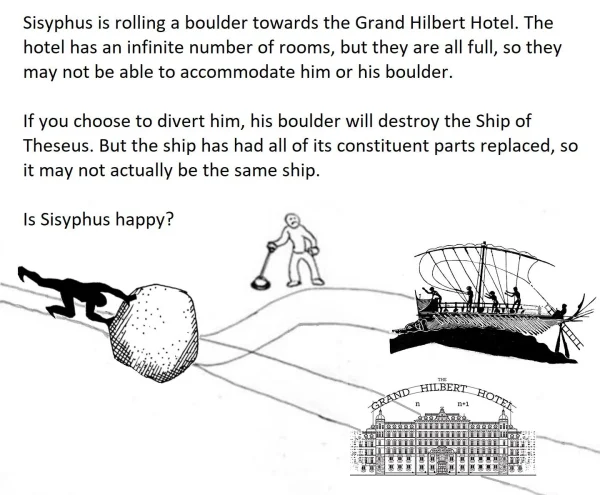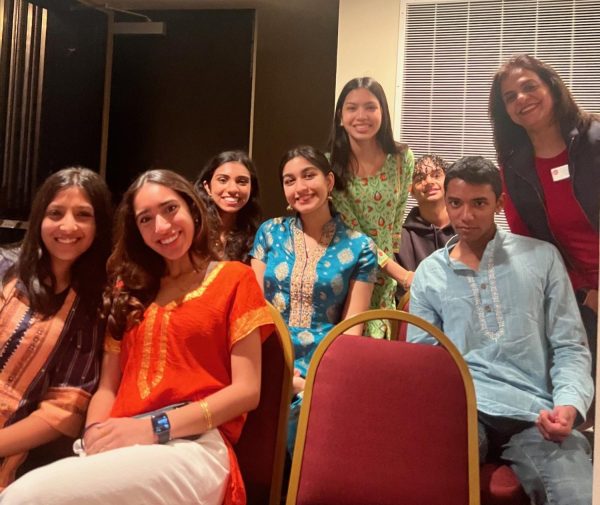Under Preview: “Captain America: Civil War”

“Captain America: Civil War” pits Captain America against Iron Man in an ideological disagreement that splits the Avengers into two warring factions.
May 5, 2016
After years of waiting, the time has finally come. “Captain America: Civil War” will be in theaters on May 6.
Over the past 12 months, I have suffered through “Ant Man,” “The Fantastic Four,” and – dare I say it – the two-and-a-half-hour disaster that was “Avengers: Age of Ultron,” just waiting for this moment. I actually watched “Ant Man” twice just because I was promised an after-credits scene relating to “Civil War.” That’s how excited I am for it.
The basic premise of “Civil War” is a disagreement between Captain America and Iron Man. One year after “Avengers: Age of Ultron,” another battle with extensive collateral damage prompts the government to regulate the actions of the Avengers and hold them accountable for any damage they cause. The Avengers split into two factions: one supporting Captain America (Chris Evans), who wants to operate without accountability, and another behind Iron Man (Robert Downey Jr.), who supports the government’s efforts. Baron Zemo (Daniel Brühl) will be introduced as the main antagonist.

The last truly great Marvel movie was “Captain America: The Winter Soldier” (2014), which I saw about seven-and-a-half times. “The Winter Soldier” is also the third-highest rated film in the Marvel Cinematic Universe (MCU) according to Rotten Tomatoes, just behind the original Avengers film (2012) and “Guardians of the Galaxy” (2014). “Civil War” has some big shoes to fill as the third installment of the Captain America series.
There are also high expectations because it will be the first film in Phase Three of the MCU. Phase One concluded with “The Avengers” in 2012 and Phase Two ended last July with “Ant Man.” Marvel Studios president Kevin Feige said Phase Three would be “a distinctively different chapter,” so “Civil War” will have to exceed viewers’ expectations and leave them excited for what’s to come. Phase Three is also intended to conclude the first part of the MCU “saga,” so “Civil War” has the extra burden of tying together the Captain America storyline.
The film seems poised for success. The inclusion of (former) Avengers like Iron Man, Black Widow (Scarlett Johansson) and audience favorite Hawkeye (Jeremy Renner) make “Civil War” more of an ensemble film than one set solely within the Captain America trilogy. The introduction of Black Panther (Chad Bosewick) and Spider-man (Tom Holland) will also attract those who might not turn out to see just another Marvel movie (or another Spider-man origin movie).
The central question is also captivating: Should superheroes face government regulation and consequences for their actions? This is an issue that has appeared countless times within Marvel. “The Winter Soldier” (spoiler alert) revealed that the organization the Avengers work for, S.H.I.E.L.D., had been infiltrated by the Nazi-founded terrorist group H.Y.D.R.A. As Captain America observes, “This isn’t freedom, this is fear.” These developments provide the foundation for the Captain’s mistrust of the government in “Civil War.” The issue in “Winter Soldier” was presented in such an intriguing and relevant context–domestic surveillance–that audiences will be waiting to see which side will prevail.

Captain America develops a distrust of the government in “Winter Soldier” when the government’s helicarriers are hijacked by H.Y.D.R.A. operatives.
There are several factors that will impact “Civil’s War’s” success much as the content of the movie. With the influx of superhero movies and television shows, “Civil War” must present a fresh take to remain interesting.
Marvel needs to break out of the rut they have fallen into, a trend also seen in the DC release “Batman v. Superman: Dawn of Justice,” where the majority of the film is spent setting up the next movie in the franchise rather than focusing on the current one. These films tend to conclude with a half-hour explosion spectaculars (sometimes referred to as the “climax” or “fight scene”).
Another common complaint is that Marvel shoehorns in so many heroes that no single one experiences enough character development. Director Joss Whedon (“Ultron”), is known for his masterful dialogue and character development, yet even he failed to recreate the same light-hearted banter that made the original Avengers such a fan favorite. “Age of Ultron” took many shortcuts, most notably by focusing on Black Widow’s infertility and her romantic relationship with Bruce Banner rather than other aspects of her character. With a movie as rooted in ideologically and character as “Civil War,” there is no way for the film to be a success if it falls into the same routine.
Even if “Captain America: Civil War” falls short of these requirements, it will still be a box-office success. “Civil War” is simply too big to fail.
Watch the Civil War teaser trailer, which was released in February after months of audience anticipation.
Watch the first official Civil War trailer.























